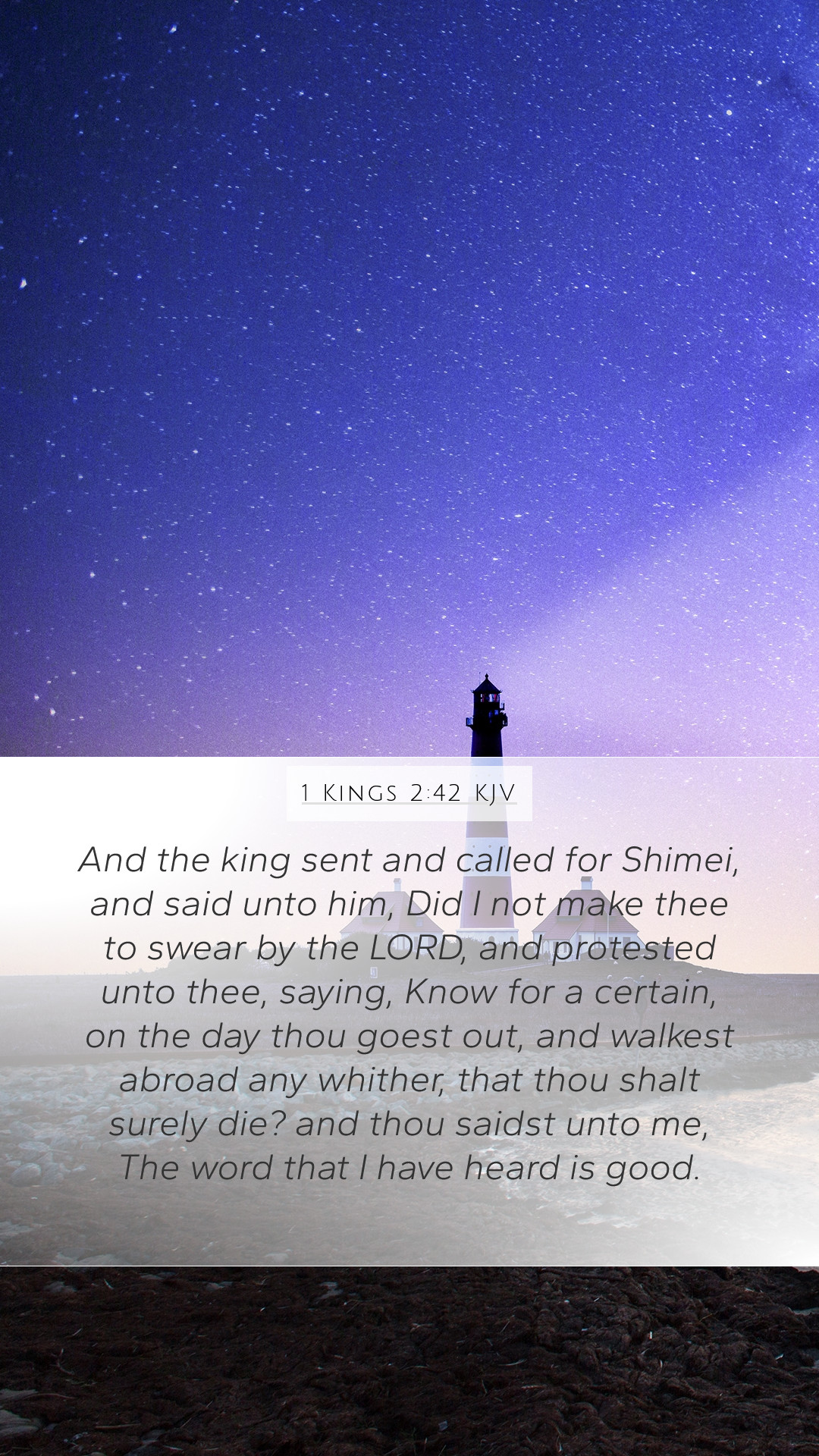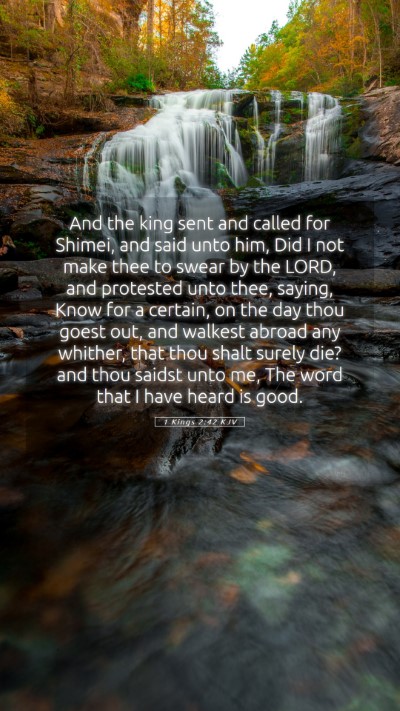Bible Verse Meaning of 1 Kings 2:42
The verse 1 Kings 2:42 states:
"And the king sent, and called for Shimei, and said unto him, Did I not make thee to swear by the LORD, and protested unto thee, saying, Know for a certainty, that on the day thou goest out, and walkest abroad any whither, thou shalt surely die? And thou saidest unto me, The word that I have heard is good."
This verse relates to King Solomon addressing Shimei, who had broken an oath, emphasizing themes of loyalty, consequence, and divine justice. Below is an in-depth analysis of this verse along with various commentary insights.
Understanding the Context
In the context of the verse, King Solomon has recently ascended the throne after David’s reign. Shimei had previously insulted King David but was spared death. However, Solomon reminds him of the oath he took to remain in Jerusalem, underscoring the importance of fidelity to one's word before God.
Commentary Insights
-
Matthew Henry's Commentary
Matthew Henry discusses the significance of the covenant made by Shimei. The act of swearing an oath in the presence of the Lord is highlighted, showcasing that breaking such an oath ushers in serious consequence. Henry notes how Solomon's reminder serves not only justice but also as a warning to others about the seriousness of promises made to God.
-
Albert Barnes' Notes
Barnes explains the historical context of Shimei's oath and the political ramifications surrounding it. He stresses the idea that Shimei's failure to comply demonstrates a lack of respect for the king's authority. This lack of compliance is interpreted as a rebellion not just against Solomon, but against the divine order, denoting how earthly kings are representatives of higher heavenly authority.
-
Adam Clarke's Commentary
Clarke elaborates on the nature of oaths in ancient Israel, particularly their binding nature. He emphasizes that an oath, especially in the presence of God, carries weight and formality. Clarke discusses the moral lessons applicable today—highlighting personal integrity and the importance of keeping one's word as reflective of one's relationship with God.
Key Themes in 1 Kings 2:42
- Loyalty and Disloyalty: The verse illustrates the consequences of disloyalty to one's promises, particularly those made in the sight of God.
- Authority of the King: It brings to light the political dynamics of ancient Israel and the expectation of loyalty to divine and royal authority.
- Divine Justice: Shimei's fate serves as a reminder of God's justice being executed through earthly governance.
Application of 1 Kings 2:42 in Daily Life
Understanding the implications of 1 Kings 2:42 can offer profound lessons. It challenges individuals to reflect on their own promises, obligations, and integrity. The commitment made to God in oaths and vows should guide one’s actions, encouraging accountability not only to authorities but also to God.
Cross References
- Psalm 15:4 - Those who keep their oaths even when it hurts.
- Proverbs 20:25 - A snare to a man is to make a rash vow.
- Ecclesiastes 5:4-5 - Importance of fulfilling vows made to God.
Conclusion
1 Kings 2:42 is rich in implications for both its historical significance and its present-day applications. By studying the context and employing a biblical exegesis approach, one can uncover deeper meanings to ensure a comprehensive understanding of scripture. Such analysis is critical for Bible study groups, online Bible studies, and personal spiritual development, offering profound insights into how our commitments and actions reflect our relationship with God.


